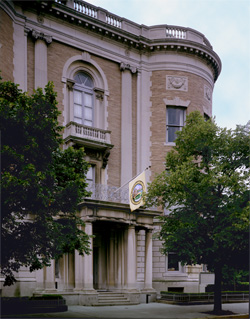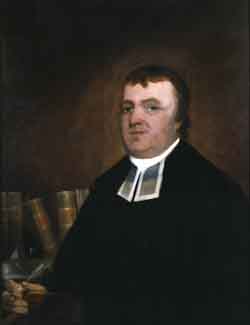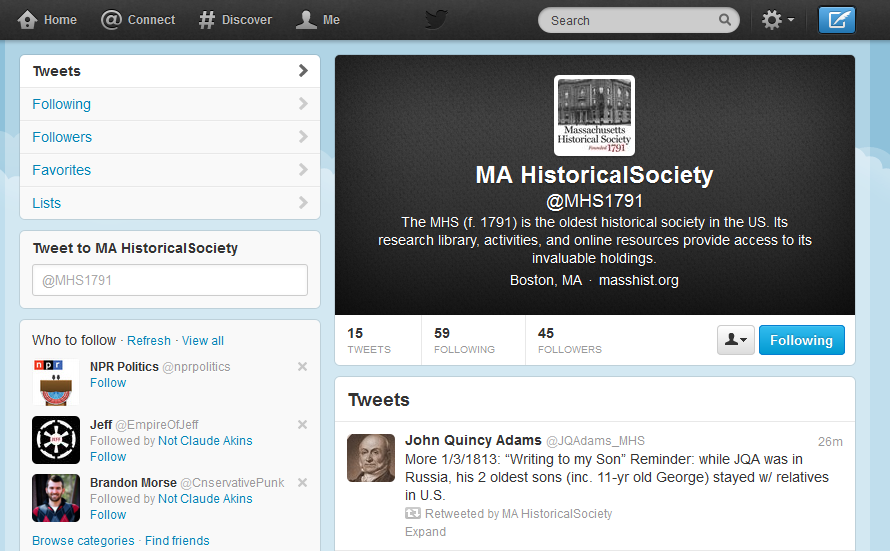By Kathleen Barker, Education Department
Did you know that the MHS has offered fellowships to K-12 educators since the summer of 2001? Nearly 60 teachers have taken part in the program, creating lessons for American history, world history, English, and even biology classrooms. If you’d like to spend four weeks of your summer immersed in the Society’s fascinating collections, consider applying for a Swensrud Teacher Fellowship. The program offers educators the opportunity to create lesson plans using documents and artifacts from the collections of the MHS, and the fellowships carry a stipend of $4,000 for four weeks of on-site research. Applications are welcome from any K-12 teacher who has a serious interest in using the collections at the MHS to prepare primary-source-based curricula. Applications must be postmarked by Friday, March 8, 2013.
In addition to our fellowship for teachers, the MHS is pleased to announce our new fellowship program for students! The John Winthrop Fellowship encourages high school students to make use of the nationally significant documents of the Society in a research project of their choosing. Although students are welcome to work in the MHS Reading Room in Boston, online access to hundreds of recently digitized documents from our collections now makes it possible for students from across the country to identify, incorporate, investigate, and interpret these primary sources in their work. The student fellow and his/her teacher advisor will each receive a $350 stipend. Applications for the Winthrop Fellowship should be postmarked no later than Thursday, March 14, 2013.
More information about both fellowship programs can be found on our website (http://www.masshist.org/education/fellowships). Interested candidates can also contact the education department (education@Masshist.org) or the library (library@masshist.org) for suggestions on potential topics or available resources.


 Today marks the 222nd anniversary of the Massachusetts Historical Society, the nation’s oldest historical society. The Historical Society (being the only one, there was no need for the Massachusetts in the name at the time of our founding) had its first official meeting in the comfortable home of William Tudor in downtown Boston. Only eight of the ten founding members — the ten being James Sullivan, William Tudor, John Eliot, Peter Thacher, James Winthrop, George Richards Minot, Thomas Wallcut, Reverend James Freeman Clark, Dr. William Baylies, and Reverend Jeremy Belknap — attended that first meeting. At that meeting they selected officers, developed a constitution, and set the maximum number of members at 30 resident members and 30 corresponding members.
Today marks the 222nd anniversary of the Massachusetts Historical Society, the nation’s oldest historical society. The Historical Society (being the only one, there was no need for the Massachusetts in the name at the time of our founding) had its first official meeting in the comfortable home of William Tudor in downtown Boston. Only eight of the ten founding members — the ten being James Sullivan, William Tudor, John Eliot, Peter Thacher, James Winthrop, George Richards Minot, Thomas Wallcut, Reverend James Freeman Clark, Dr. William Baylies, and Reverend Jeremy Belknap — attended that first meeting. At that meeting they selected officers, developed a constitution, and set the maximum number of members at 30 resident members and 30 corresponding members.  As laid out in a
As laid out in a